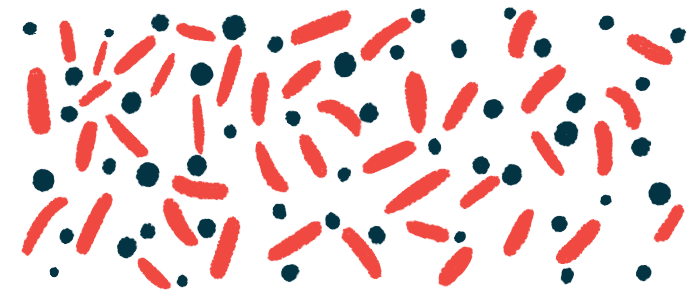Bacterial ecotin could reduce CF lung damage by inhibiting enzyme
Study finds tissue-damaging enzyme inhibited in patient sputum
Written by |

Bacterial ecotin has the potential to reduce lung damage in cystic fibrosis (CF) by inhibiting the activity of an enzyme called neutrophil elastase without affecting the immune system’s ability to fight off infections, researchers found.
Because the findings come from a small number of patient samples, “future work will aim to better characterize the effect of ecotin, and its derivatives, on inhibiting NE [neutrophil elastase] activity and its consequences in CF,” the researchers wrote. The study, “The bacterial serine protease inhibitor ecotin inhibits neutrophil elastase enzymatic activity in cystic fibrosis sputa,” was published in Heliyon.
In CF, accumulation of thick, sticky mucus makes it difficult to breathe and clear the airways, allowing bacteria to thrive and grow in number. A type of immune cells called neutrophils can help fight off infections by entering the bloodstream and traveling to the lungs.
However, when neutrophils enter the lungs in large numbers, they mount a heightened inflammatory response by releasing tissue-damaging enzymes like neutrophil elastase, which can contribute to a progressive decline in lung function.
Researchers in the U.S. and Canada tested how well ecotin, a bacterial protein known to inhibit neutrophil elastase activity, might reduce lung damage by looking at samples of sputum from nine people with a diagnosis of CF. Sputum contains mucus brought up from the lungs by coughing.
Higher doses more effective
Ecotin produced by each of four different species of bacteria — Campylobacter rectus, Campylobacter showae, Escherichia coli, and Pseudomonas aeruginosa, the most common cause of lung infections in people with CF — reduced neutrophil elastase activity in sputum.
Among them, ecotin from the Campylobacter bacteria was the most effective, completely inhibiting neutrophil elastase activity when added at a high dose to some of the samples of sputum. Ecotin from P. aeruginosa was the least potent inhibitor, but like the other types of ecotin, the higher the dose, the more effective it was.
While ecotin inhibited neutrophil elastase activity, it didn’t interfere with how well neutrophils were able to fight off bacteria. In the presence of ecotin from the Campylobacter bacteria, neutrophils killed about as many P. aeruginosa or Staphylococcus aureus bacteria as if no ecotin had been added.
“C. rectus and C. showae ecotins displayed a strong inhibition of NE activity in CF sputa, with complete inhibition at the higher doses tested,” the researchers wrote, noting that this went “without compromising neutrophil-mediated bacterial killing of two dominant CF lung pathogens [harmful microorganisms], P. aeruginosa or S. aureus.”
Alongside testing the best way to deliver the potential treatment, likely directly into the lungs, “in the future, the effect of ecotins on NE will be expanded to sputum samples of a larger CF study cohort [group] using more bacterial clinical isolates,” the researchers wrote.







